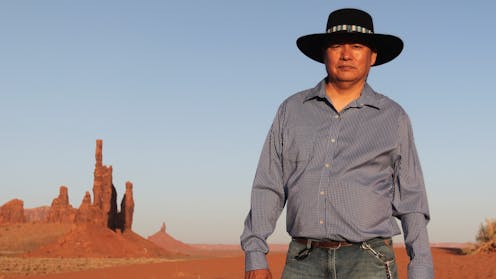Native Americans have experienced a dramatic decline in life expectancy during the COVID-19 pandemic – but the drop has been in the making for generations
- Written by Allison Kelliher, Assistant Professor, Department of Family & Community Medicine, University of North Dakota
 Indigenous patients who live in rural areas often have limited access to medical care. THE PALMER/E+ via Getty Images
Indigenous patients who live in rural areas often have limited access to medical care. THE PALMER/E+ via Getty ImagesSix and one-half years.
That’s the decline in life expectancy that the COVID-19 pandemic wrought upon American Indians and Alaska Natives, based on an August 2022 report from the National Center for Health Statistics.
This...

